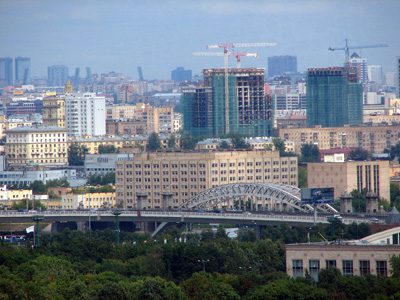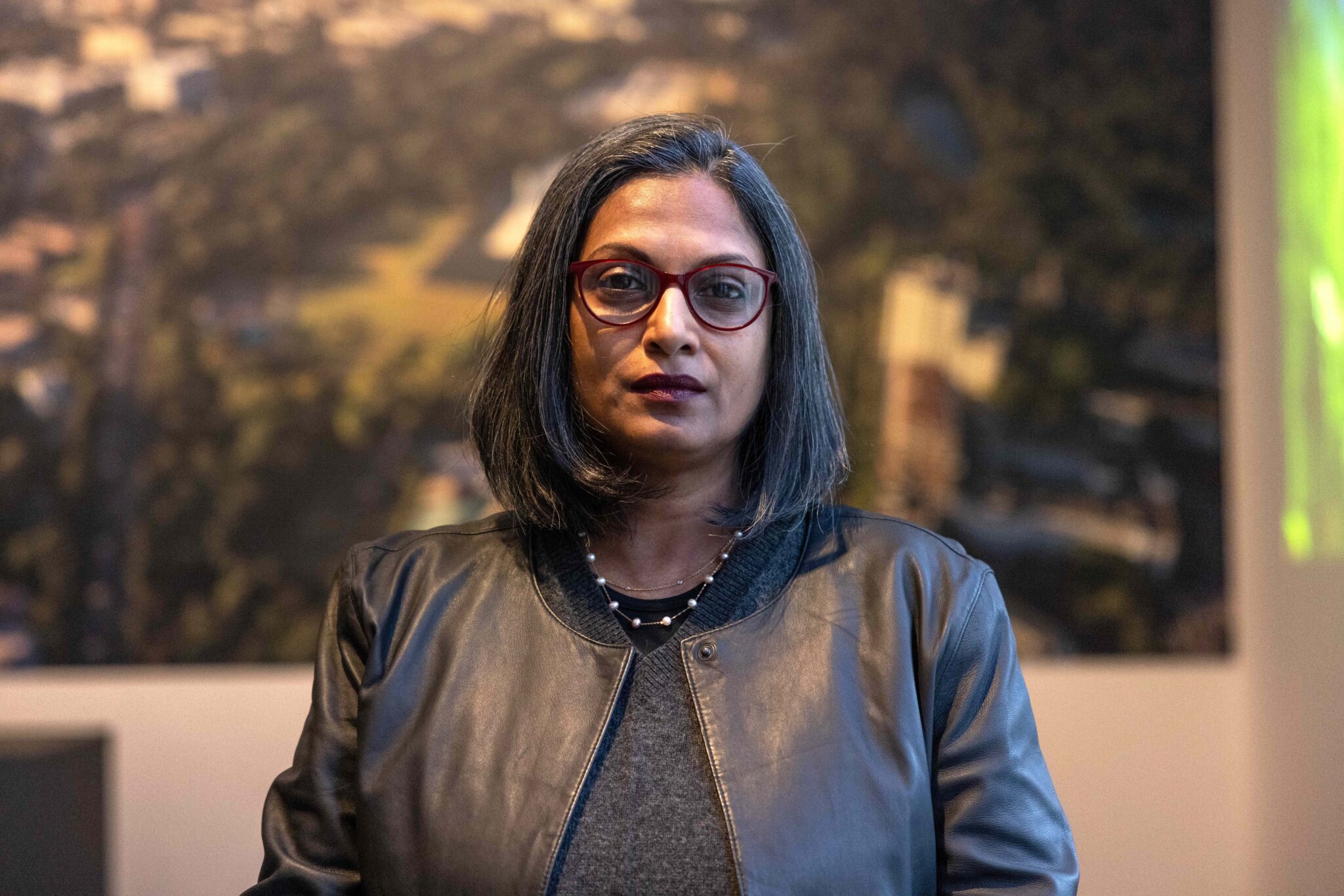
Moscow is being engulfed by a whirlwind of change. An old, starched and repressed city has been hit by the forces of rampant consumerism and a building boom of epic proportions. How well it will survive and what the resultant city will be like as a place to live in and experience is up for grabs. Still, it’s great to be involved in the party, and to have the opportunity to make a lasting impression on whatever will out.
I first visited Moscow during 1988 in the days of ‘glasnost’, when the international spotlight was on Raisa and Mikhail Gorbachev – he was Time magazine’s man of the year. Four years before the final collapse of the Soviet Union, food shortages and economic difficulties were very apparent. Tourists were given an experience that glossed over such concerns and instead focused on Russia’s glorious past. Intourist guides were delegated to accompany us everywhere, trying to ensure we saw only the positives.
What we did see were buildings and spaces that were quite magnificent in scale and quality – the Kremlin with its plethora of towers and armoury museum, Red Square and St Basil’s cathedral, the Novodevichy convent, and the ornate metro stations. We stayed in the singularly unimpressive (and since demolished) Rossiya Hotel, but then our room did overlook Red Square and the onion domes of St Basil’s. Back then the wide boulevards had little traffic and the shops had nothing to sell. Obliged to spend a fixed amount of roubles, we bought stamps, books and biscuits. The impression was of a city bereft of a contemporary identity and whose citizens regarded their history as an irrelevance – it was a vacuum waiting to be filled.
Our Moscow office, which opened a couple of years ago, has had to move three times since due to expansion, and I now travel there regularly… and what a change since the 1980s! The place is vibrant, people have a real sense of purpose and the choices of food, shopping and entertainment are limitless (but very expensive). Stalls at the GUM department store on Red Square which in 1988 were empty are today crammed with designer goods at staggering prices. The hotels are light years away from the Rossiya in terms of quality but at $400 a night and up they should be.
Gripes about the costs aside, the city now has a real heart; it feels reassuringly, well, European. Sitting in the sunshine eating fine food at the Red Square’s Café Bosco, it seems a far cry from the place where tanks and heavy artillery were paraded just twenty or so years ago. The city-centre factories belching pollutants, that seemed so anomalous at that time, are being replaced by new, mixed-use developments, most of which are properly conceived and well designed. True, the once quiet boulevards are now gridlocked daily but we suffer this in London, New York and Paris too, cities that see themselves as leading-edge urban environments.
Moscow is still as full of contrasts as many cities in developing regions – rich and poor, classy and tacky, sparklingly new and sadly dilapidated sit side by side in a rich and varied mixture that I find extremely interesting – perhaps a result my upbringing in Liverpool and Sheffield. Both these great cities declined when their major industries closed, leaving remnants of a proud past alongside poverty and ruin. But unlike these cities, where the engines for change were slow to establish, Moscow, free of its Communist shackles, is changing at a frenetic rate that shows no sign of slowing. Hopefully the burgeoning respect for heritage and adherence to the city plan should prevent a Dubai style free-for-all – Moscow and its citizens deserve better than that.
As a postscript, some practical advice. Visas, which are required to travel, must be validated at your hotel on arrival. Unlike Paris, Moscow isn’t a city for walking – those traffic-jammed boulevards are just too daunting. Negotiating your way around the metro is cheap but complex unless your route is direct or you can read some Russian. Taxis or arranged tours are the preferred mode of transport for visitors but take care and arrange them through your hotel well in advance. The weather can be challenging during the winter months – last year the snow lingered until May, but this year it was hotter than Athens. Expect the unexpected and you shouldn’t go far wrong.
David Hughes is the CEO of Swanke Hayden Connell, which he joined in 1988; Hughes’ responsibilities include SHC’s Moscow office.
AT179/June 07 p96.














